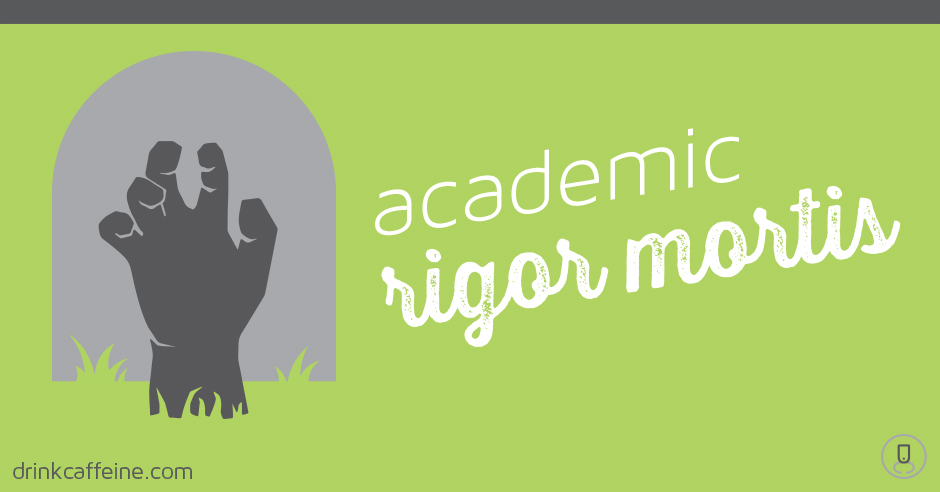
Thinking outside the backpack on “academic rigor”
Schools have long been in a Greco-Roman wrestling match with the question of how to present academic rigor in their particular brand of education to the world.
Cruise the websites of public or private learning institutions and you’ll see the term everywhere. Depending on the source, academic rigor can mean more homework, more testing, making students suffer, new levels of behavioral strictness, serious intellectual challenges, or a single standard for all.
Here’s some basic background on the issue – and 6 ways to escape the cul de sac of academic rigor and reach for something deeper and more honest about your institutional identity.
How the problem began
In the 1980s, “Liberal arts” and “Education” became synonymous with (take your pick): Softness, laxness, failure to contribute to the workforce or the economy, or a lack of accountability. Or making tests too easy. Or all of the above.
Many experts agree it started with the 1983 report called “Nation at Risk,” which positioned US education as “enmeshed in mediocrity.”
The report linked education to economic performance for perhaps the first time. It also directly compared American educational performance with international competitors.
In sum, Nation at Risk laid societal and economic failures on Education’s doorstep and – wait for it – signaled the advent of heavy reliance on external testing. This set the table for No Child Left Behind.
The Academic Rigor bandwagon
In 2006, 10 governors called for greater “rigor” in their schools.
In 2009, 5 states mandated “rigorous” algebra, geometry, and lab science – with zero definition of the term.
Then, as recently as 2015, 17 states piled on, demanding more “rigor” in their curricula. Everybody used the term, but no one defined it.
Academic seriousness needs to be seen, not heard. And in our view, the key is to use content that creates more transparency between the institution and the target, whether it’s a student, parent, faculty member, donor, or alum.
6 ways to jump off the bandwagon – and into the truth
1. Create a jargon-free zone around Admissions and Marketing
Use of jargon is antithetical to differentiation. To carve out a clear positioning, schools must develop their own vocabulary in language and images. So commit to getting rid of: “Academic rigor,” “21st Century Skills,” “Content knowledge,” and any other jargon that’s laying around.
2. Define your academic practices in detail
Creating an academic brand that articulates serious purpose (like any branding initiative) has to be based in truth. So put some energy into crafting a true understanding of how your teachers teach. Define some standards. Pinpoint examples of classes where students really have to work to advance. Build stories around individual achievement.
3. Show it, don’t tell it.
Make learning a visual story. Make the website an image-rich, video-front-and-center experience.
Use less institutional copy trying to own and define academic rigor and use more imagery, interviews, information graphics, and concrete examples of learning. Author original articles and white papers, and post them to your site. A web environment that has in-depth content reflects a school brand that is smart and serious.
4. Let the students speak.
They are your most compelling spokespeople, and they hold a potentially valuable key in unlocking the truth of your brand.
Listen to unscripted students talk about their school in this video we recently produced for the Ethel Walker School.
5. Let the faculty speak.
In truth, the only thing more compelling than a truly engaged student talking about learning is a truly engaged faculty member talking about teaching. Find a nucleus of your best teachers and leverage content from them for interviews, videos, and blog entries. Their words will define “rigor” better than anybody.
6. Seek what’s unique.
One academic client of ours has a really strong tutoring program.
The problem: they called it a Tutoring Program.
By redefining tutoring as Academic Mentorship, they made it about personal coaching and individual achievement instead of needing remedial help.
Okay, we admit that academic rigor is a big topic, and way too big for a blog.
So contact us to continue the conversation over a beverage.


